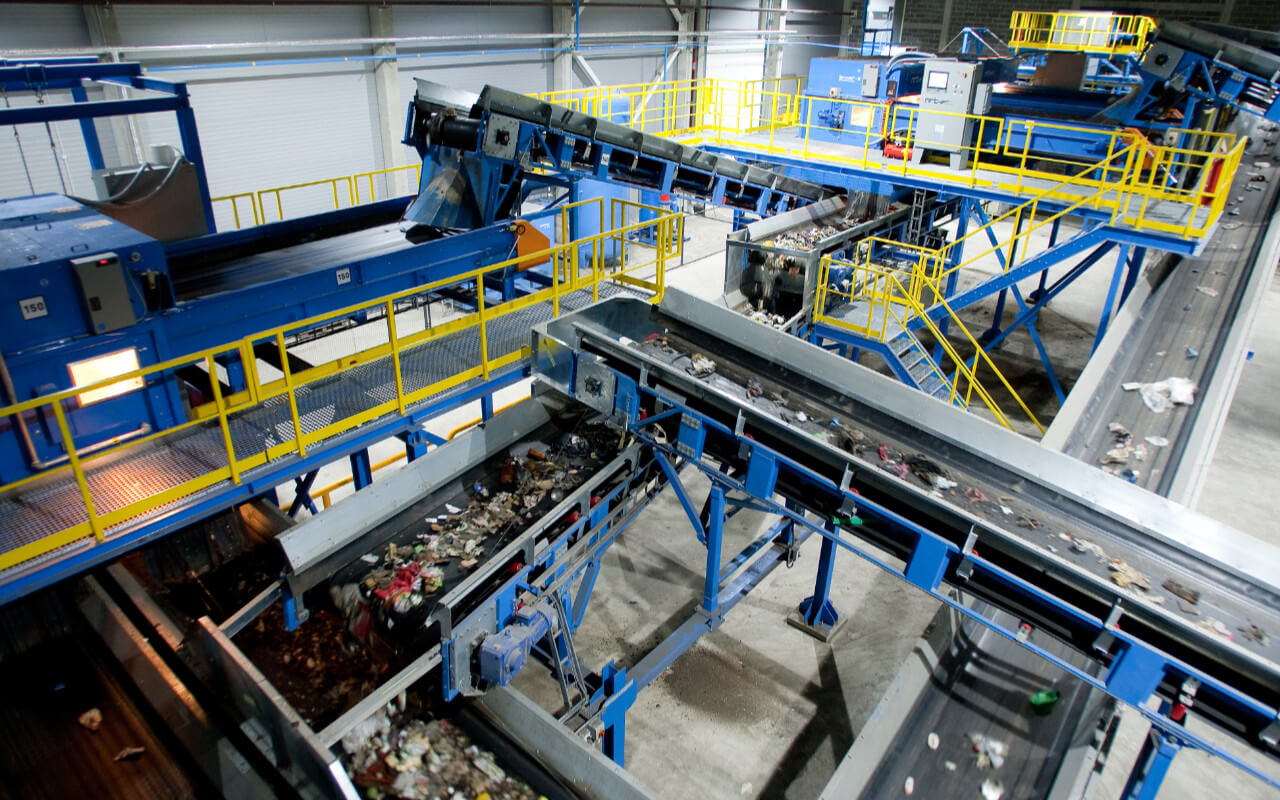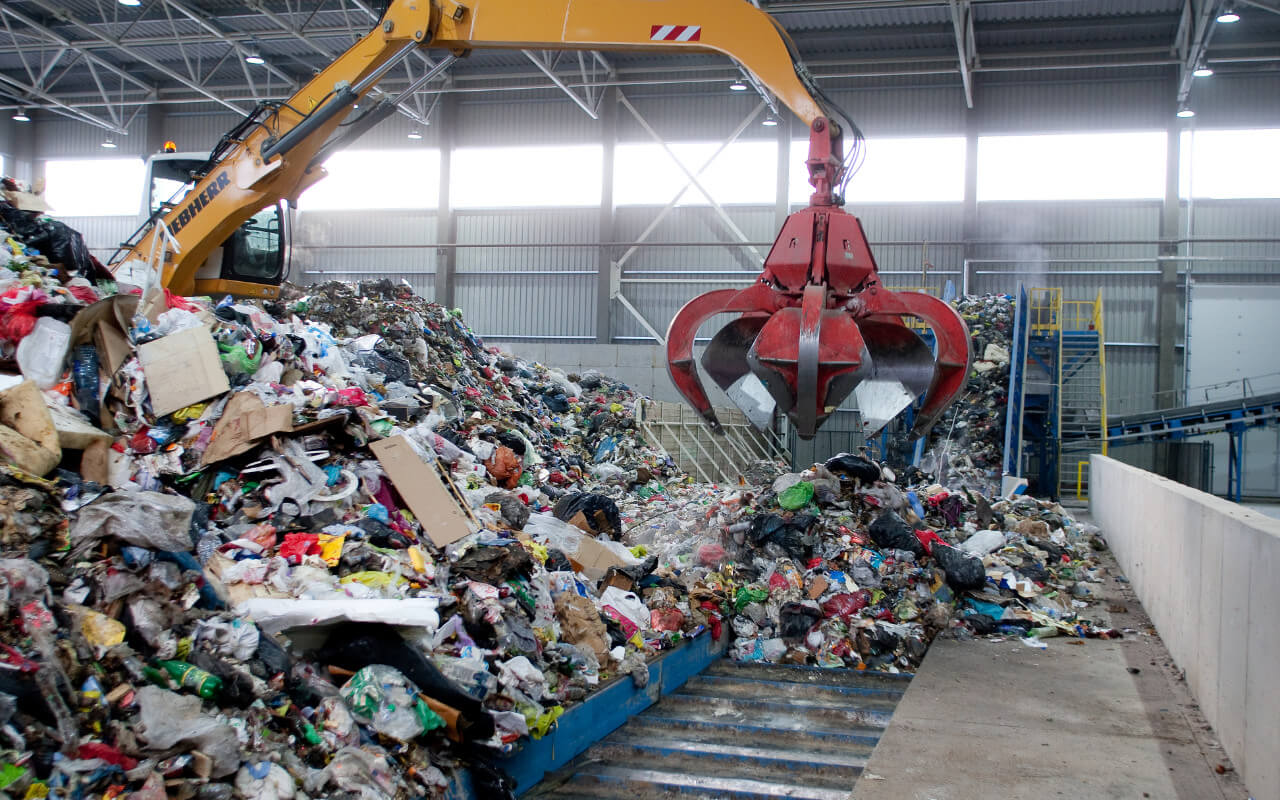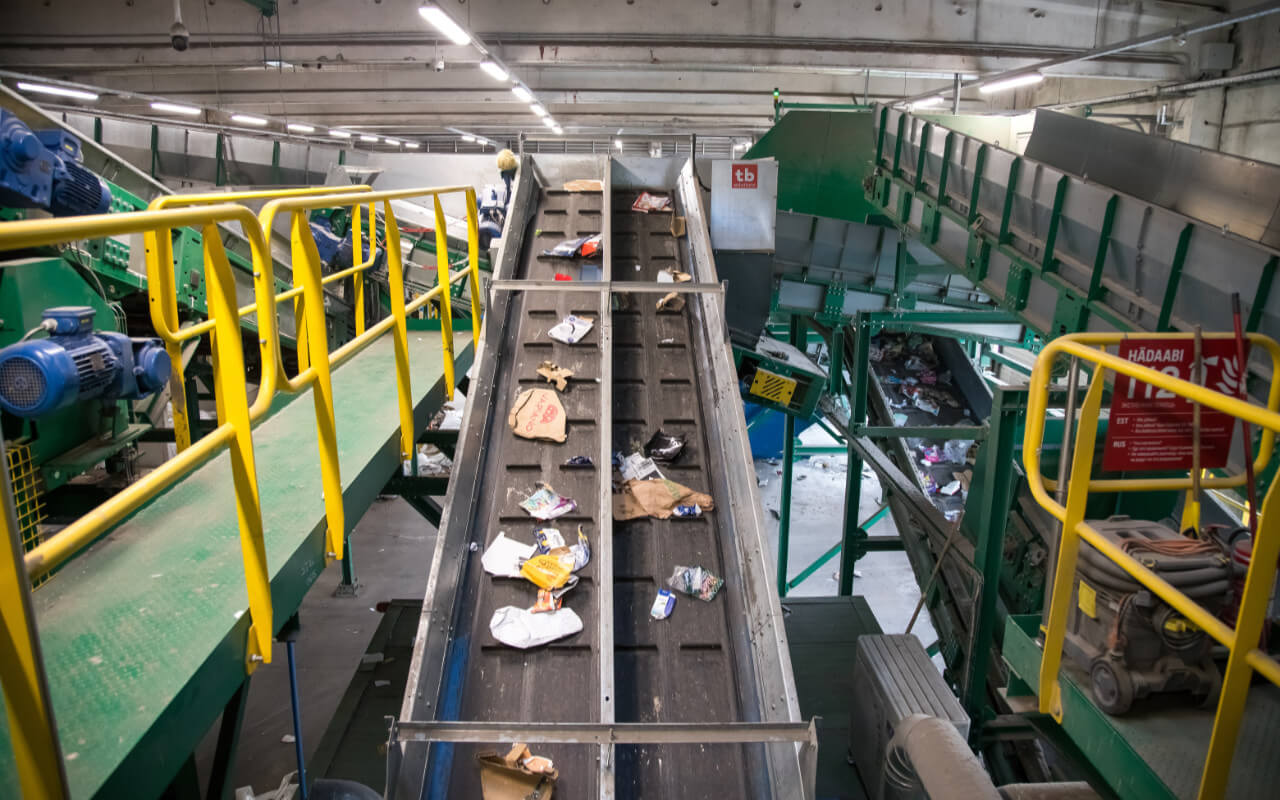Sorted waste in the industrial sector as an opportunity, not an obligation

Azortum solves a global problem in Tallinn, Estonia. Our 25-member team primarily creates sorting solutions for waste handlers in Scandinavia and the Baltic region, helping to sort valuable materials from waste and redirect them back into circulation.
"Green thinking and the circular economy are the new normality that must be adapted to in every field of life, including industry. Sorting materials from waste and valorizing them allows Estonian industry to find a competitive advantage in the new market situation," explained Taavi Põri, CEO of Azortum, in an article on the portal Tööstusuudised.ee about waste sorting opportunities in the Estonian industrial sector.
He added that sorted waste should be viewed as an opportunity, not an obligation, in the industry.
The scale of the problem being solved
In 2021, the average Estonian produced 395 kg of municipal waste, while the average European's footprint was 34.18% heavier, amounting to 530 kg of municipal waste per year. It's something to be proud of!
Unfortunately, despite our light footprint, we are one of the largest contributors to landfilling and incinerating municipal waste in Europe. Only 30% of the municipal waste generated in Estonia was either recycled or composted.
In 2030, we face the European Union's target of recycling and reusing 60% of the produced municipal waste. Although we are behind the rest of Europe, we are not hopelessly far behind.
As of today, three countries have already met this goal – Austria, Germany, and Slovenia.

Untapped potential in the Estonian industrial sector
"At a time when Estonian industry is seeking ways to stand out in the global market, there are numerous opportunities in sorted waste," notes Põri.
He adds that sorting technology is advancing rapidly, along with the potential for waste valorization. "Estonian industry could map out more opportunities for waste recycling by working closely with both the government and research institutions. For example, a large amount of lower-quality plastic, such as bread bags, is discarded during sorting and currently has no use. However, it is possible to produce so-called black tar from it, which, when refined, can yield crude oil," says Taavi Põri, CEO of Azortum, discussing the untapped potential in Estonian industry.
There are more examples. Azortum, in collaboration with Ragn-Sells, is designing and installing a tyre shredding and sorting line, which will effectively separate recyclable materials. Such a sorting line not only helps reduce waste volume and protect the environment but also creates new opportunities for industrial sectors that rely on these sorted materials in their supply chains.
"Today, the question is not so much whether it is possible to sort waste, but what to produce from these materials. What could add value to the global market and give new breath to the Estonian economy? This is currently a billion-euro question for entrepreneurs, scientists, and officials," adds Põri.
Waste management needs changes at different levels
INDUSTRIAL SECTOR
Today's production processes need change. Even at the grassroots level, that is, in product design, material recycling should be considered. A good example of this is the caps on juice cartons, which remain attached to the package after opening. This reduces the amount of plastic caps that end up in nature and increases the possibility of sorting, processing, and recycling plastic caps.
A negative example is various composite material packages, which are difficult to recycle. For instance, "eco" labeled cardboard packages that are laminated with plastic film on the inside are hard to sort and recycle. The issue is not with the sorting technology but with the fact that removing the film makes the sorting process too costly for waste handlers and does not justify the investment.
CONSUMERS
The circular economy does not work if consumers do not participate in the change. Sorting household waste is necessary because it affects the selling price of sorted materials. Therefore, consumer involvement in waste sorting is essential for the implementation and revitalization of the circular economy.
A positive example is the success story of deposit-marked containers, where 9 out of 10 deposit-marked bottles or cans are returned to circulation. Numerically, this means that in 2023, 333 million single-use packages, or 15,000 tons of packaging, were collected and directed to recycling. However, consumers should always ensure that the returned containers are emptied and do not contain other types of foreign objects.
A negative example is Tetra Paks, which often end up in household waste. Although Tetra Paks are made of cardboard (75%), they also contain plastic (20%) and metal (5%). Theoretically, Tetra Paks are valuable waste that can be sorted.
Unfortunately, sorting and separating materials from Tetra Paks is currently a losing project for waste handlers. Sorted materials are sold on the global market based on prevailing prices, which are influenced by the percentage of material content and its purity.
At first glance, a dirty Tetra Pak in household waste may seem like an innocent habit, but in the end, consumers' collective sorting habits directly impact the competitiveness of our waste handlers in the global market.
WASTE HANDLERS
If waste disposal (landfilling) and incineration (for heat energy) are cheaper than waste sorting, recycling becomes more difficult.
"The greatest motivation for waste handlers to make sorting lines more efficient comes from legislation," says Põri. He adds that since Latvia increased the landfill tax from 65 EUR/t to 95 EUR/t in 2021, the interest of Latvian waste handlers in sorting waste has surged. "Overnight, the situation arose where even the sorting of construction and demolition waste became economically attractive in Latvia. Previously, most of it was simply taken to the landfill," he added.
"Scandinavia, on the other hand, has reached a point in waste sorting where the societal discussion is not about whether to sort waste, but about how efficiently it can be done," Põri elaborates on the development of waste management in Scandinavian countries. "For example, Norwegian clients request that the planning of sorting lines include high technology that uses artificial intelligence to sort waste with 99% accuracy autonomously. One aspect is the precision of robotic arms in sorting, another is eliminating issues related to labor. These marginal gains are what create a competitive edge for Scandinavian waste stations today," adds Põri.
How to proceed?
"Waste should not be viewed as an obligation at different levels, but as an opportunity. The transition to green energy in the industrial sector has shown what happens when we are late with our decisions. Although we are still lagging behind in waste sorting and valorization, I have faith in our consumers, entrepreneurs, scientists, and officials. But it is important to remember that a new success story begins with a change in our thinking – we must see waste as an opportunity in our daily decisions, not an obligation."

Write us about your project!
At Azortum, we are committed to developing unique solutions that would be sustainable to operate and profitable for your company.
We have received your information and will be in touch with you shortly. Thanks!
